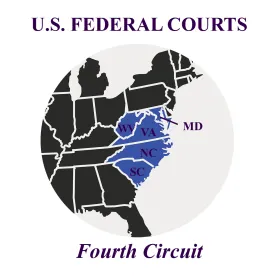On Feb. 11, 2020, the United States Court of Appeals for the Fourth Circuit decided that the Federal Energy Regulatory Commission (FERC) did not overstep the statute of limitations in its effort to impose more than $29 million in civil penalties over alleged wholesale electricity market manipulation carried out by Dr. Houlian Chen and other associated financial entities, including Pennsylvania-based hedge fund Powhatan Energy Fund LLC (collectively herein referred to as “Powhatan”).
Affirming the District Court for the Eastern District of Virginia (Lower Court), the Fourth Circuit rejected arguments from Powhatan that the enforcement suit was time-barred because the manipulative activity alleged by FERC happened outside a five-year statute of limitations.
Powhatan argued that the statute of limitations began when the alleged manipulative trades ended in August 2010. FERC argued that its claim did not accrue until it completed the Federal Power Act’s (FPA) prerequisites for filing a lawsuit to enforce civil penalties. The Fourth Circuit agreed, saying that FERC is bound by Congress to provide a notice of the proposed penalty and wait for 60 days of nonpayment before it can file a claim.
FERC did not file its complaint until July 2015, which would have excluded all but four days from civil penalties. The Fourth Circuit sided with FERC and determined that the statute of limitations was not triggered until Powhatan failed to pay the penalties within the 60 days after FERC imposed them. FERC may impose fines up to $1 million per day per violation of the FPA, which prohibits manipulation of interstate energy markets.
In 2015, FERC asked the Lower Court to enforce its FPA penalties against Powhatan, after concluding that Powhatan violated FERC’s anti-manipulation rule by engaging in a fraudulent up-to-congestion trading scheme. This scheme involved a hedging mechanism against transmission system congestion charges designed to appear to be spread trades to collect payments known as marginal loss surplus allocation in the PJM Interconnection, LLC market during 2010.
Further, the Fourth Circuit held that forcing FERC to speed up its enforcement timeline would risk imposing civil penalties against investigation targets based on potentially slipshod investigations, hastily undertaken to protect against the effect of a premature limitations period. In this sense, ensuring that FERC has enough time to thoroughly vet each alleged instance of market manipulation before filing suit would benefit the investigation targ





 />i
/>i
